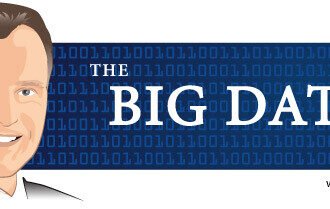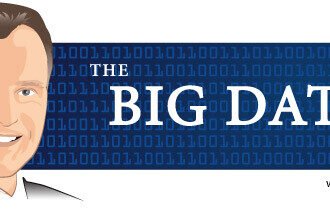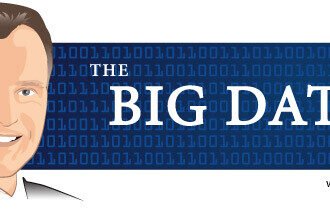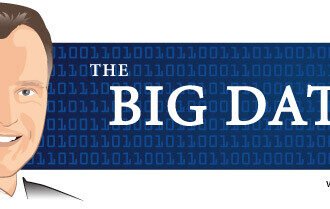In this post I take a look at another company that has put Big Data at the heart of its business. This time I’m taking a look at Acxiom – sometimes called the biggest company you’ve never heard of! You may not have heard of them – but it’s more than likely they’ve heard of you. As the world’s largest processor of consumer information, Acxiom has made a fortune from working out new ways of profiling customers. This information is then sold to advertisers, who use it to target their marketing efforts in ever more precise ways. Their company website claims that they provide “access to information on all but a small percentage of households in the United States.” The company’s Arkansas headquarters is said to contain 23,000 computer servers, storing around 1,500 data points on half a billion people around the world. Of course, this has often proved to be as controversial as it sounds – the company has been hauled before the US Federal Trade Commission and accused of sharing data without consent, failing to allow consumers to opt-out of its services and nominated for a Big Brother Award for “Worst corporate invader for a tradition of data brokering.” But this hasn’t stopped it from generating over a billion dollars a year in revenue and its sales are said to account for 12% of the total sales generated by the US direct marketing industry. Acxiom currently describes itself as an “enterprise data, analytics and software as a service company” which is an impressive sounding salad of current buzzwords but information has been their bread and butter since it was founded in 1969. Initially established by Charles D Ward as Demographics, to collect data for a Democrat Party mailing list, it generated income by handling payroll and data processing for local businesses. In the mid-70s a management buyout led by Charles D Morgan led to a change of leadership, with Morgan as CEO, and a change of focus towards direct marketing, which the company would build its fortune on. It created the List Order Fulfilment System – the first online mailing list generator, and made a name for itself managing databases and mailing lists for large corporate clients. It went through several name changes before arriving at Acxiom and expanded by buying up other data rich companies, including the world’s largest supplier of direct marketing lists, Direct Media Inc, in 1996. These lists provided businesses with the contact details of millions of customers around the world, and allowed Acxiom’s clients to segment them by age, location or any other information that was known. Meaning they could directly market to the people most likely to be interested in their products and services. Basically if, say, a computer hardware retailer knows that its best customers in terms of high spending and little need of after-sales support is a male aged 35 – 50 who owns a car and their own home, within 5 miles of a major city centre, they can buy the contact details of thousands of people fitting that profile. Since then Acxiom has focused on learning as much as it can about as many of us as possible, and then selling that detailed information to advertisers. Their data is mined from a multitude of sources around the globe – public records such as electoral, marriage and birth registers, and consumer surveys, as well as an increasing number of online sources including, of course, social media. In 2010 it published a (no longer available) presentation on its website showing how its system could track a visitor, from browsing a Facebook business page “Like” notification from a friend, from a friend, to visiting the advertiser’s website, browsing its products and making an order. Known as PersonicX, the system knows from the Facebook activity that the visitor fits a certain consumer profile, and during every stage of interaction, he or she is presented with the offers which, statistically, they are most likely to snap up. Services such as these are outsourced by Acxiom to companies all around the world, from global retail, financial services and media companies to small businesses. Critics have pointed out that the “segmentation” used by Acxiom and other companies like them could lead to exclusion in some cases. As things stand we might not be too worried – in fact most people complain that they receive too much unsolicited marketing rather than too little. But if more healthcare or financial services providers adopted these methods, it could lead to some sections of society being excluded from deals which could make a real difference to their health or bank balance. Acxiom has responded to privacy concerns by saying that it puts confidentiality at the core of its business. Their website states that it is “a global thought leader in addressing consumer privacy issues and earning the public trust.” However such statements haven’t always seemed to be backed up by practice. The company does offer a global “opt out” on its website, ostensibly allowing you to make yourself invisible to them. However a New York Times journalist found security flaws (since fixed) when investigating the process, and her opinion that far more care seemed to be given to safeguards designed to protect the privacy of their corporate clients, rather than individual consumers, was backed up by an FTC identity protection specialist. One positive step they have taken is the creation of aboutthedata.com in 2013, aimed at helping consumers get a better idea of how their data is used by marketers. The debate over the ethical concerns of the business model will go on – it has been shown that people feel it is hugely important that they have control over what aspects of their personal data are used to sell to them. But unless there are major changes to the law, Acxiom will continue learning as much as it can about our lives and how we spend our money, while remaining for the most part invisible. As always, thank you very much for reading my posts. You might also be interested in my new book: Big Data: Using Smart Big Data, Analytics and Metrics To Make Better Decisions and Improve Performance You can read a free sample chapter here. 
Is This the Biggest Big Data Company You Have Never Heard of?
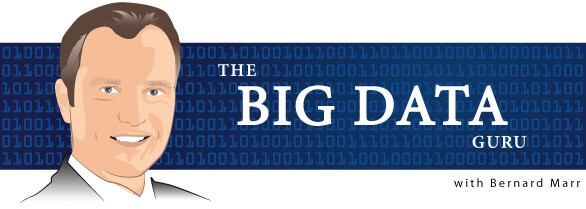
For more, please check out my other posts in The Big Data Guru column and feel free to connect with me via: Twitter, LinkedIn, Facebook, Slideshare and The Advanced Performance Institute.
Bernard Marr is a best-selling author, keynote speaker, strategic performance consultant and analytics, KPI and Big Data guru.






